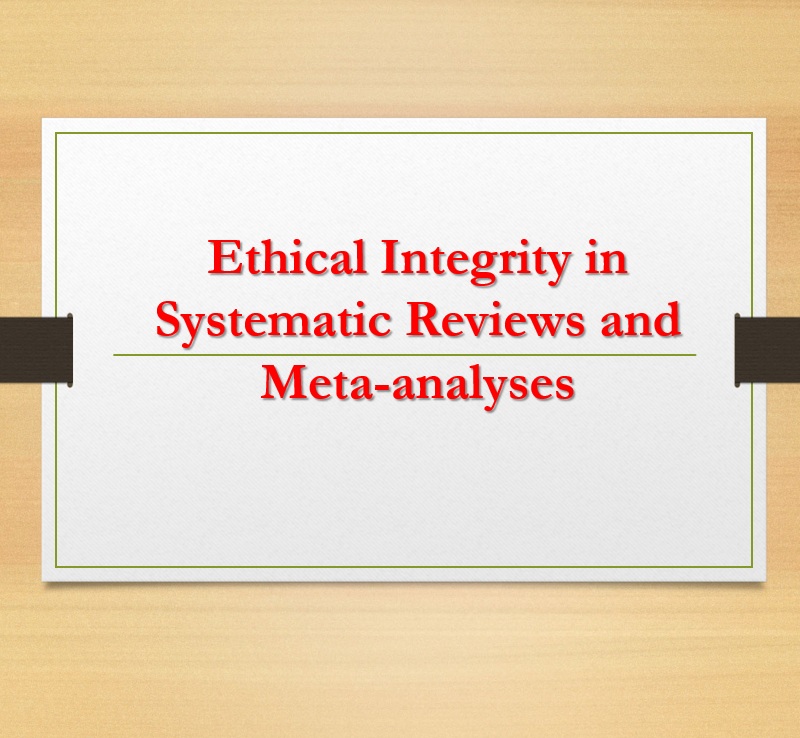Ethical integrity in systematic reviews and meta-analyses: challenges, pitfalls, and best practices in ophthalmology
Medical hypothesis discovery and innovation in ophthalmology,
Vol. 14 No. 2 (2025),
31 July 2025
,
Page 40-49
https://doi.org/10.51329/mehdiophthal1522
Abstract
Background: Systematic reviews and meta-analyses (SRMAs) are central to evidence-based ophthalmology, influencing clinical guidelines and treatment decisions. However, the rapid increase in SRMA publications has exposed serious ethical concerns, including selective reporting, duplicate publication, plagiarism, authorship misconduct, and undeclared conflicts of interest. Despite established frameworks such as Preferred Reporting Items for Systematic Reviews and Meta-analyses (PRISMA), International Prospective Register of Systematic Reviews (PROSPERO), and International Committee of Medical Journal Editors (ICMJE), ethical compliance remains inconsistent, undermining the credibility of synthesized evidence. We aimed to examine the ethical landscape of SRMAs with a particular focus on ophthalmology, highlighting common pitfalls, evaluating current guidelines, and providing practical recommendations to ensure that these reviews are conducted and reported with the highest ethical standards—ultimately safeguarding the integrity of the evidence base that underpins clinical eye care.Methods: A structured literature search was conducted in PubMed, Scopus, Web of Science, and Google Scholar through May 2025 using combinations of the terms “systematic review,” “meta-analysis,” “ethics,” “research integrity,” and “ophthalmology.” Relevant guidelines, peer-reviewed studies, and editorials were synthesized to identify ethical pitfalls and propose best practice solutions.
Results: We illustrate these challenges with ophthalmology-specific examples and highlight the downstream impact of unethical SRMAs on clinical practice and public trust. We also propose actionable recommendations for researchers, editors, and institutions to enhance the ethical quality of SRMAs, including improved training in research integrity, stricter enforcement of reporting guidelines, and increased editorial oversight. By addressing these ethical dimensions, the ophthalmic community can ensure that SRMAs not only meet methodological benchmarks but also reflect the core values of scientific honesty, accountability, and patient-centeredness. Approximately one-third of ophthalmology SRMAs fail to assess bias or comply with PRISMA guidelines. Industry-sponsored reviews have shown a tendency to favor commercially linked interventions, raising objectivity concerns. Key ethical concerns include: lack of protocol registration, selective inclusion of studies, inclusion of retracted or flawed trials, duplicate or plagiarized data, and authorship and disclosure misconduct.
Conclusions: To protect the integrity of ophthalmic evidence synthesis, SRMAs must adhere to the highest ethical standards. Researchers should commit to transparent, methodologically rigorous, and ethically sound practices. Journals and institutions must enforce compliance, provide oversight, and support education in research integrity. Field-specific adaptations of reporting standards may further support ethical clarity. Ultimately, ethical SRMAs are critical to preserving trust, guiding responsible care, and fulfill their intended role as trustworthy instruments in advancing evidence-based ophthalmology.

- Abstract Viewed: 0 times
- Full Text PDF Downloaded: 0 times


